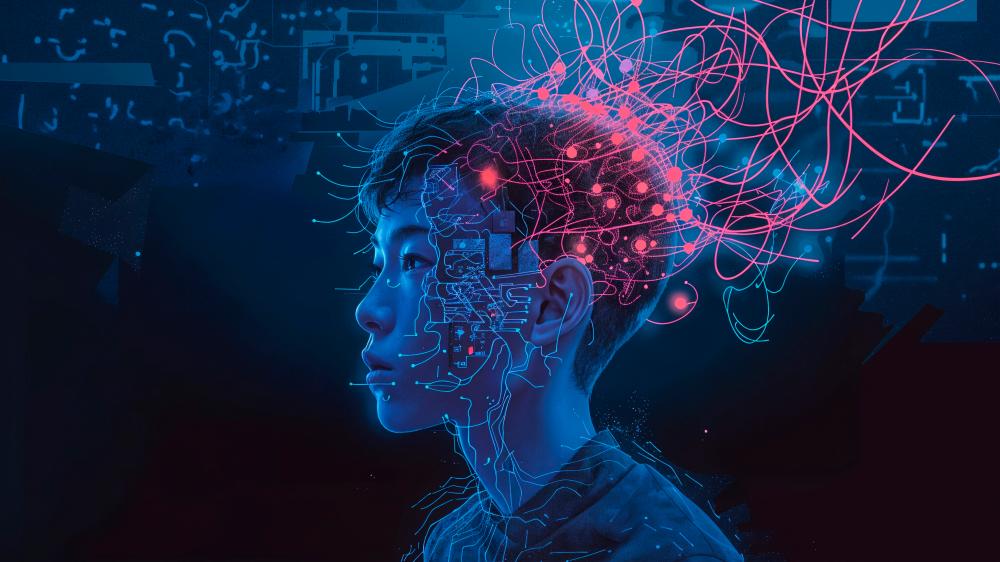WHEN I was growing up in the small town of Pontian in Johor, my choice of after-school fun was limited to either riding my bicycle around or running around with my friends for a round of rounders, “galah panjang”, slipper-throwing or whatever game that was “in” at the time.
But aren’t our children spoilt for choice nowadays? Today, our younger generation faces an unprecedented array of choices in every part of their lives. From career paths to lifestyle decisions, from “What’s for lunch?” to “What’s new Fortnite game to download?”, the options seem to be mind-blowingly endless.
But here is the thing: This abundance of choice, while exciting, can also be paralysing.
According to a June 2023 article by Cleveland Clinic, analysis paralysis, characterised by an inability to make decisions due to overthinking, can have several harmful effects. One significant consequence is the potential loss of opportunities.
When we become bogged down in analysing all of the possible outcomes, we may fail to act in time, leading to missed chances.
The process of overanalysing options can also lead to increased anxiety and stress, creating a vicious cycle where the fear of making the wrong choice worsens the paralysis, further hindering decision-making abilities.
Constantly struggling to make choices can deplete mental energy too, leading to decision fatigue and impairing our overall cognitive function.
Moreover, overthinking can reduce creativity and decrease our performance on any given tasks.
The associated anxiety can lead to lower output and diminished problem-solving capabilities.
We may doubt our decision-making abilities, negatively affecting our self-esteem and well-being, which in turn can lead to further indecision and anxiety.
More worrying is that prolonged analysis paralysis can also manifest physically, causing symptoms such as insomnia, digestive issues and heart palpitations due to rising stress and anxiety levels.
Therefore, if there is one piece of advice we should impart to our youngsters about living with the seemingly limitless options in life, it is this: Do not be overwhelmed by the unlimited choices in life.
It is easy to fall into the trap of analysis paralysis, constantly weighing options, second-guessing decisions and ultimately, never taking that crucial first step.
And to add onto the complications, the world now (and most probably the future too) is pretty much governed by social media and algorithms.
Our Instagram and TikTok feeds are curated, our Netflix recommendations tailored, and our news (and advertisements!) personalised, but amid all this digital noise, there is only one version of you in the future. And that version is shaped not by the choices you ponder but by the actions you take.
So, how do we navigate this sea (no, make that an ocean!) of possibilities? Here is a commonsensical approach: Trust your gut feelings.
In an age where algorithmic data drives our day-to-day decisions, it may seem counterintuitive to rely on intuition. But your gut feeling is more than just a hunch, it is the culmination of your experiences, values and aspirations.
Malcolm Gladwell, in his 2005 bestseller Blink: The Power of Thinking Without Thinking emphasises that the human brain is capable of making quick judgements or “snap decisions”, often more accurately than through prolonged analysis.
He argues that these rapid cognitive processes allow individuals to assess situations effectively in a fraction of a second, relying on intuition rather than detailed reasoning.
Interestingly, research studies seem to support Gladwell’s take too. A 2022 study published in Frontiers in Behavioral Neuroscience indicates that there is a strong connection between the gut and the brain, which influences emotions, mood, and decision-making.
The neuroscientists found that these gut-to-brain signals can significantly impact how we feel and think, suggesting that gut feelings are not merely emotional but are rooted in physiological processes.
According to a 2019 Harvard Business Review article, studies have shown that in high-pressure environments, such as emergency medical situations or investment decisions, relying on gut feelings can lead to effective outcomes.
For example, surgeons and investors often make better decisions when they trust their intuition, especially when faced with incomplete information.
So, to our dear youngsters, instead of feeling overwhelmed and paralysed with all the available choices and options in life, just simply go ahead and embrace them. Choose a path, any path, and start walking. Trust your gut, work hard, and remember – you can always adjust your course along the way.
Now, what did your gut say today?
The writer is an associate professor of biomedical engineering and former director of the Corporate Communications Centre at Universiti Malaya. Comments: letters@thesundaily.com









